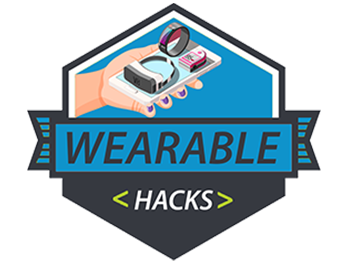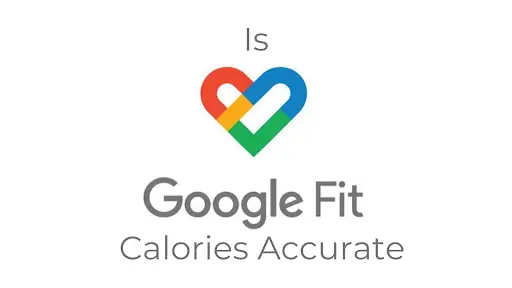Is Google Fit Calories Accurate
I can’t remember how many times I heard my friends ask each other this critical question. So, I promised them to do thorough research and come back with the final nail to the coffin of “Is Google Fit calories accurate?” And here are my findings in a nutshell.
Google Fit’s calorie burn tracking accuracy can vary with an error margin of 20-40% in smartphones and smartwatches. In other words, Google Fit’s calorie accuracy depends on your age, weight, height, activity level, heart rate, and device settings.
That explains why you might find your Google Fit calories too low or too high compared to other calculators or devices. But is it really accurate? And by how much?
Let’s get to the heart of the matter.
Learn more: Is Google Fit Accurate?
Is Google Fit accurate in counting calories?
According to some Reddit users, Google Fit’s calorie counting is not very accurate and can differ from other sources like treadmills or heart rate monitors.
Smartphones and smartwatches measure calories with an error margin of 20-40% regardless of the app you use – Google Fit or otherwise.
So, I installed Google Fit on three of my devices, including my Galaxy smartphone, tablet, and Galaxy Watch 4. I walked with these three gadgets for 4500 steps (approximately 3 km) daily for five days. Note that I am 171 cm tall and I weigh 71 kilos.
Below is a table showing my Google Fit’s calorie metrics across all the devices:
| Google Fit Calories | Smartphone | Galaxy Watch 4 |
|---|---|---|
| Day 1 | 2400 | 2600 |
| Day 2 | 2500 | 2550 |
| Day 3 | 2450 | 2600 |
| Day 4 | 2400 | 2600 |
| Day 5 | 2500 | 2550 |
| Average | 2450 | 2580 |
However, according to Mayo Clinic’s calories burned calculator, this level of activity means I should burn around 2850 calories.
Image Source: Mayo Clinic
To calculate the accuracy of each device compared to the Mayo Clinic’s recommended baseline of 2850 calories, we can use the following formula:
Accuracy (%) = [(Recommended Calories – Google Fit Calories) / Recommended Calories] x 100
- Google Fit accuracy on the smartphone:
= [(2850 – 2450) / 2850] x 100 = 13.33% less accurate
- Google Fit accuracy on the tablet:
= [(2850 – 2460) / 2850] x 100 = 13.68% less accurate
- Google Fit accuracy on the Galaxy Watch 4:
= [(2850 – 2580) / 2850] x 100 = 9.47% less accurate
This calculation shows that my Galaxy Watch 4 is the most accurate among the three devices, being off by 9.47%.
You can see that smartphones and tablets are less accurate. They have a difference of approximately 13.33% and 13.68%, respectively, compared to Mayo Clinic’s baseline. These variations may be due to differences in sensors and algorithms used by each device.
However, Google Fit calories is more accurate on smartwatches than on tablets or smartphones. Smartwatches have more sensors, built-in accelerometers, and gyroscopes that can track movement and data more accurately than smartphones or tablets.
In this case, Google Fit provides a reasonably accurate estimate of calories burned with an error rate of less than 20%. However, it is just an estimate.
The actual number of calories you burn can vary depending on your fitness level, the intensity of your workout, and the environmental conditions.
How does Google Fit measure calories burned?
Google Fit is a fitness app that helps you track your physical activity and health. One of the things it does is estimate how many calories you burn throughout the day.
But how does it do that?
Google Fit uses different device sensors and algorithms to measure your movements and heart rate. It also uses your height, weight, age, and gender, to calculate your basal metabolic rate (BMR).
Google Fit then adds the calories you burn from your activities to your BMR to get your total daily energy expenditure (TDEE). That means the amount of energy your body uses in a day, including when you are at rest and when you are active.
However, Google Fit does not measure your calories directly. It only estimates them based on the data it collects from your device and other sources. Therefore, it may not be very accurate. In short, its accuracy depends on many factors.
So, don’t over-rely on the Google Fit calorie data if you want to lose weight loss or achieve your fitness goals. Use it only as a guide to monitor your progress and activity level. Always consult with your doctor or nutritionist before changing your diet or exercise routine
Factors Affecting Google Fit Calorie Accuracy
Here are the issues that can cause deviations in your Google Fit calorie metrics:
The device you use
Google Fit can work with smartphones, tablets, smartwatches, or fitness trackers.
However, each device may have different sensors and capabilities, which may affect the accuracy of Google Fit. For example, a smartwatch with a heart rate monitor may be more accurate than a smartphone without one.
The settings you choose
The app needs some permissions and settings to work properly. Google Fit needs access to your location data to track your distance and speed. It also needs to run in the background without being interrupted by battery optimization or other apps.
If you do not enable these settings or permissions, Google Fit may be inaccurate or it may not work well or at all.
The activity you do
Google Fit uses some general formulas and assumptions to estimate your calories. However, these formulas may not account for all the individual differences that affect your energy expenditure. For instance, your muscle mass, metabolism, genetics, health conditions, or environmental factors may influence how many calories you burn.
The individual differences
Here are seven ways to get the most accurate calorie count from Google Fit:
- Input correct height, weight, age, and gender.
- Enable location services for tracking.
- Disable battery optimization for accuracy.
- Calibrate device sensors for precision.
- Regularly sync data across devices.
- Manually enter/edit activities for accuracy.
- Consult with a doctor/nutritionist for guidance.
How accurate is Google Fit?
Google Fit in general can be up to 99% accurate with GPS turned on. However, Google Fit calories, in particular, is a different story altogether, since this has an error rate of 20-40%.
Is Google Fit good for weight loss?
It can be a useful tool for weight loss, but it is not very accurate or reliable. Use it only as a guide to monitor your progress and activity level.
Which app is accurate for calories burned?
Some Stanford University engineers found a new calorie burn measurement system that is more accurate than smartwatches and smartphones, with an average error of just 13%. This system is also small, and inexpensive, and you can even make it yourself.
Conclusion
My Google Fit calories have an error rate of less than 20%. Reputable sources like Stanford University suggest that smartwatches and smartphones can measure calories burned with an error rate of 20-40%.
While Google Fit calories is not entirely accurate, you can use it to offer adequate information to monitor your progress and activity level. However, don’t alter your exercise or feeding routine unless instructed by your doctor or dietitian.
Do you have any other questions? Please feel free to comment below.


